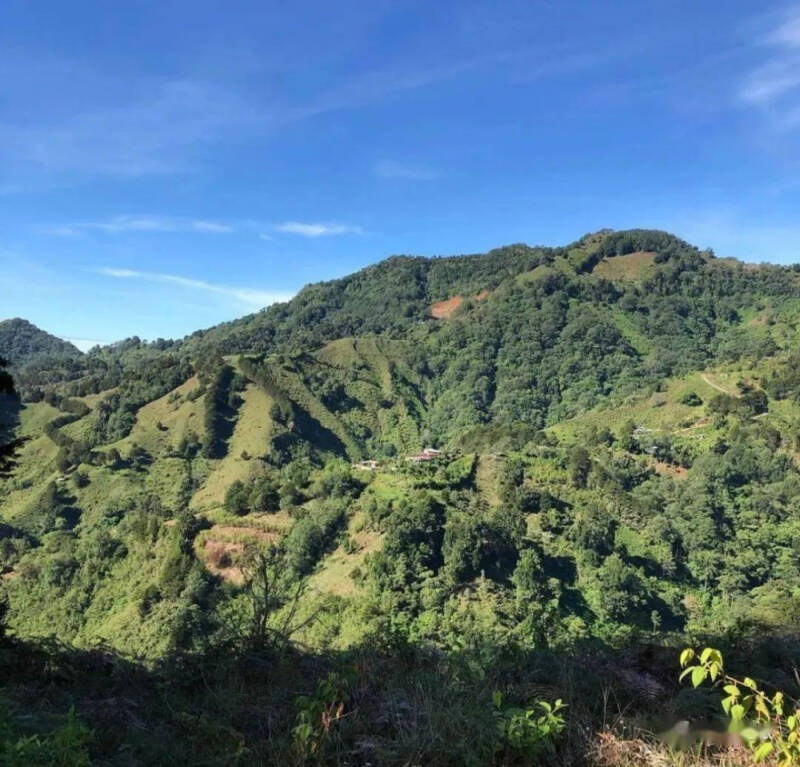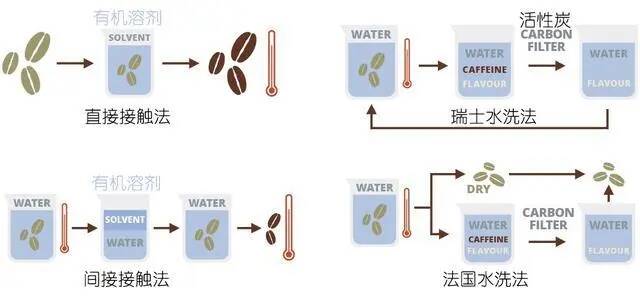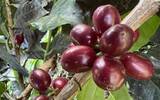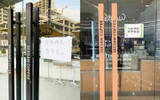Brazil IAC's research on the cultivation of "natural decaffeinated" coffee has entered a deterministic stage.
Recently, Brazilian researchers said in a decades-long study that the study is entering a decisive stage, which focuses on growing coffee plants with little or no caffeine.

A statement from the Sao Paulo state government said the findings could change the commercialization of coffee-free beans in major markets such as the United States and Europe. At present, decaffeinated coffee beans need to be treated through industrial processes, including water-based processes (such as Swiss water-washed caffeine-free method) and processes involving chemical solvents.

The Brazilian study was conducted by the Campinas Institute of Agronomy (IAC), which has had a great influence in the field of coffee agronomy since its inception in 1888. According to IAC, about 90 per cent of coffee factories in Brazil and 70 per cent of the world's coffee factories can be traced back to the development of IAC. And for more than 20 years, IAC researchers have been pursuing low-caffeine to decaffeinated to coffee plant development.
The Institute is currently growing hybrids from different coffee varieties, which may produce naturally decaffeinated coffee. At present, the results of the experiment will not be known for at least two to three years. After all, new coffee species need to go through the stages of growth, flowering and fruiting, which is a necessary stage for coffee species.
According to the Sao Paulo state government, once the caffeine-free variety is successfully planted, the Campinas Institute of Agronomy (IAC) will begin to assess whether the varieties can be produced in large quantities on a commercial scale. At present, the experiment is being carried out all over Brazil.
According to a report by Market Research Future (MRFR) Future Market Research, the global decaffeinated coffee market is expected to be worth about $26.2 billion by 2027, with a compound annual growth rate of 4.45 per cent. By 2030, the global non-caffeine market will be worth $28.86 billion, a growth driven mainly by health-conscious young people who will want to reduce their caffeine intake.
In recent years, we have also seen the emergence of natural low-caffeine varieties such as Laurina and AC1. Although these varieties provide potential solutions for drinking quality coffee while reducing caffeine, they cannot be planted in large quantities due to a variety of planting problems. So this Brazilian IAC study will be crucial for the global industry to unleash the true market potential of these varieties.
Important Notice :
前街咖啡 FrontStreet Coffee has moved to new addredd:
FrontStreet Coffee Address: 315,Donghua East Road,GuangZhou
Tel:020 38364473
- Prev

Introduction of Colombian Coffee Bean and Honduran Coffee Bean Pacas
Now, with the development of the coffee industry, coffee varieties have been bred through continuous transplantation, mutation and mating. In addition to some common varieties, Bourbon, Typica, Kaddura, Catimor and so on.
- Next

Seesaw stores are closed all over the country!
▲ Click to follow | Daily boutique Coffee Culture Magazine Coffee Workshop is entering the end of the year, and the news that several stores of boutique coffee brand Seesaw Coffee ("Seesaw") have been closed across the country has aroused widespread attention and discussion on social platforms. Not long ago, netizens sent messages one after another.
Related
- What grade does Jamaica Blue Mountain No. 1 coffee belong to and how to drink it better? What is the highest grade of Blue Mountain coffee for coffee aristocrats?
- What are the flavor characteristics of the world-famous coffee Blue Mountain No. 1 Golden Mantelin? What are the characteristics of deep-roasted bitter coffee?
- Can I make coffee a second time in an Italian hand-brewed mocha pot? Why can't coffee be brewed several times like tea leaves?
- Hand-brewed coffee flows with a knife and a tornado. How to brew it? What is the proportion of grinding water and water temperature divided into?
- What is the difference between Indonesian Sumatra Mantinin coffee and gold Mantinin? How to distinguish between real and fake golden Mantelin coffee?
- What does bypass mean in coffee? Why can hand-brewed coffee and water make it better?
- Unexpected! Ruixing Telunsu lattes use a smoothie machine to foam milk?!
- % Arabia's first store in Henan opens into the village?! Netizen: Thought it was P's
- Does an authentic standard mocha coffee recipe use chocolate sauce or powder? Mocha Latte/Dirty Coffee/Salty Mocha Coffee Recipe Share!
- What is the difference between Vietnam egg coffee and Norway egg coffee? Hand-brewed single product coffee filter paper filter cloth filter flat solution!

